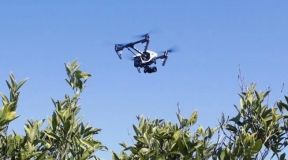African Economic Outlook 2017: Unlock the potential of African entrepreneurs for accelerating Africa’s industrial transformation
African Economic Outlook 2017: Unlock the potential of African entrepreneurs for accelerating Africa’s industrial transformation

African governments need to integrate entrepreneurship more fully into their industrialisation strategies, according to the African Economic Outlook (AEO) 2017, produced by the African Development Bank (AfDB), the Development Centre of the Organisation for Economic Co-operation and Development (OECD) and the United Nations Development Programme (UNDP).
This year’s report has a strong focus on the key role of entrepreneurship in the new industrial revolution in Africa. “The key to successful development in Africa is to nurture the emerging culture of entrepreneurship, to use the famous words of Hernando De Soto, “el otro sendero” (the other path) for development; a path that can unleash high-octane creativity and transform opportunities into phenomenal realisations,” said Abdoulaye Mar Dieye, Regional Director for Africa at the United Nations Development Programme.
The Outlook reveals that twenty-six African countries have an industrialisation strategy in place nowadays. However, most of these strategies tend to emphasise the role of large manufacturing companies at the expense of entrepreneurs in sectors with the potential for high growth and employment creation, including start-ups and small and medium-sized firms. Businesses with fewer than 20 employees and less than five years’ experience provide the bulk of jobs in Africa’s formal sector. Additionally, the advent of digital technologies and new business models is blurring the boundaries between manufacturing – which is now bouncing back at 11% of Africa’s GDP - and the services sector. Industrialisation strategies thus need to support other sectors where African economies have comparative advantage, such as agri-businesses, tradable services and renewable energy. New strategies need to avoid dependence on businesses that are not environmentally friendly.
“African economies cannot miss out on their next production transformation. Entrepreneurs should be lead actors in Africa’s journey into the fourth industrial revolution,” said Mario Pezzini, Director of the OECD Development Centre and Special Advisor to the OECD Secretary-General on Development.
Africa has high untapped potential for entrepreneurship. In 18 African countries for which statistics are available, 11% of the working-age population set up their own firms to tap specific business opportunities. This level is higher than in developing countries in Latin America (8%) and in Asia (5%). However, few of them invest in high-growth sectors, grow to employ more workers or introduce innovations to markets. To turn their dynamism into an engine of industrialisation, African governments can improve the skills of workers, enhance the efficiency of business clusters – such as industrial parks and special economic zones – and increase access to finance, with more affordable credit and more innovative instruments, for small and young firms.
--
Executive Summary: http://www.africaneconomicoutlook.org/en/executive_summary2017
Country notes: http://www.africaneconomicoutlook.org/en/countries

















